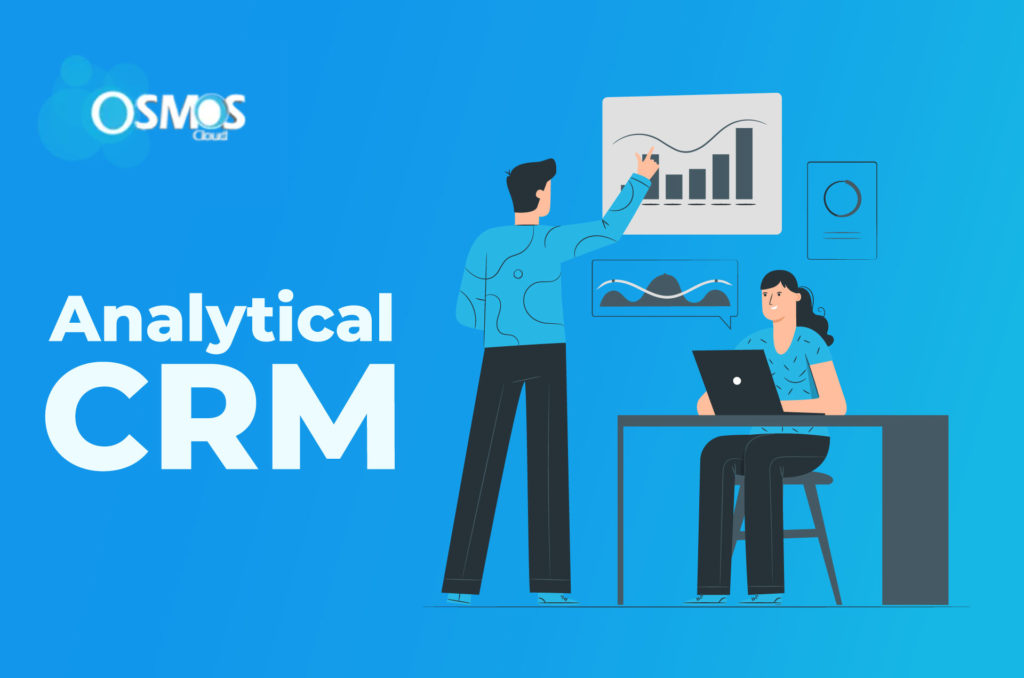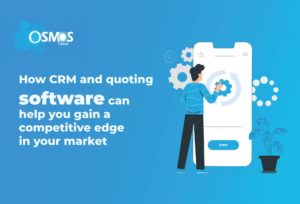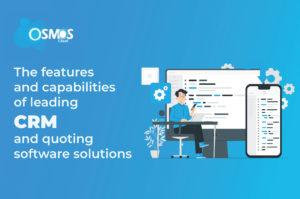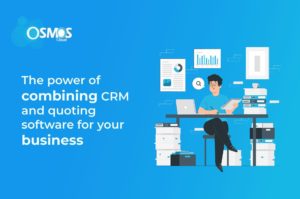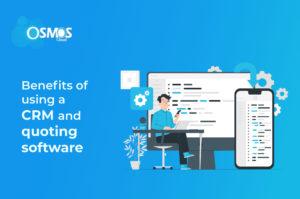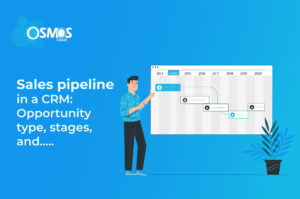There are main types of CRM systems. The first is analytical CRM, the second is operational CRM and the third type of CRM is collaborative CRM. Analytical CRM is predicated on deep data analysis and helps you formulate winning strategies for customer satisfaction and customer retention.
In any business, the customer stays the centralized focus. Today, the success of a business is determined by how you treat the customer. Competitors in a respective field try to gain an edge in the industry by increasing their customer satisfaction levels. Only gaining customers and retaining those for a long time can provide great promise in terms of revenue.
Therefore analytical CRM helps in analyzing data of your customers. When conducting a business, you can gather plenty of customer data throughout the years. This data may relate to transactions, purchases, emails, customer information, and more. Assessing and analyzing data can help a business maintain a longer and stronger relationship with the customer.
Analytical CRM – Benefits
Analytical CRM allows a customer to have access to features and functionalities that improve customer satisfaction for good profitability and better business growth. Analytical CRM is more drawn toward back-end processes and operational CRM is the front end.
Analytical CRM makes it better for customers to make a systematic breakdown of data and unveil information that can result in better customer engagement and lead generation. As a customer, when you visit a particular shop you do not end up purchasing anything. However, when you have visited the shop and you view the different products that are up for offer and you find the different compelling deals, you become intrigued to spend your money.
Businesses can generate leads from you because you become interested in the particular products or services being offered. For instance, eCommerce websites also practice lead generation techniques with the help of analytical CRM. It also helps with long-term value benefits and equity. For instance, a brand that has loyal and engaged customers will have longevity and survive even in some of the worst economic times.
Even if a business decides to increase its pricing, it will still be able to retain its clients despite its price hikes. Loyalty and customer equity create lifetime value for a business, and this lifetime value can come as a by-product of analytical CRM. Analytical CRM solutions can streamline customer behavior and formulate a pattern in their purchasing activity.
Once they display the pattern to you in metrics and a graphical representation, you can capitalize on it by changing your actionable processes into the most profitable operation. These patterns also reveal the best opportunities for a business to upsell, and thus, it makes their selling strategies a very lucrative endeavor.
Three Major Concepts of Analytical CRM
Three major concepts include analytical CRM. The first is data warehousing, the second is data mining and the third is online analytical processing. Whenever you implement analytical CRM, these three major concepts will play a vital role.
For instance, data warehousing collects and aligns the data of clients. Customer data can be related to multiple things, including your identity data, mobile number, transactions, emails, products, and more. Data warehousing makes it possible to collect all the customer data and organizes all of them into a single interface.
Once the data is organized and collected on a single platform, you can run it through the data mining and online analytical processing channels of analytical CRM. Data mining is when you draw out patterns from a large amount of data. Moreover, data mining is possible only after the analytical CRM runs the data through online analytical processing.
CRM platforms that work on the analytical end, use OLAP or online analytical processing to seep through the data, filter it, and draw evaluations so that the data determines different viewpoints. With the help of online analytical processing, you can forecast the data and make it accessible for reporting, and trend evaluation.
For instance, there can be various data sources and analytical CRM will act as a tool that will help in getting statistics for the data. It will convert unorganized and jumbled data into readable and useful information that will help you scale your business. It also helps in developing patterns and allows you to formulate certain business strategies based on the data.

Features
The main purpose of analyzing customer data is to design and implement targeted marketing strategies and campaigns for better success. One of the key features of analytical CRM is that it allows users to streamline their marketing strategy according to the analysis it can conduct. An organization can decide and optimize its marketing according to the exact taste and likeness of its target audience.
Other features of an analytical CRM include upselling, cross-selling, and retention strategies. It offers a dashboard that lays down the charts and metrics which unveil the best marketing and operational strategies for a business. Other features of an analytical CRM software pertain to the type of analysis it can perform.
Features of the software pave the way for multiple kinds of analysis. These include segmentation and selection, upselling and cross-deep, acquisition and retention, and market-based analysis. Segmentation features allow you to separate your customers into different segments according to their preferences. Customer segmentation allows you to market to each customer and gives you better insight into your customer base which can be integral to the growth of a business.
You cannot target every individual so it is better to target each customer according to their characteristics and interests. By doing so, your analytical CRM tool will help achieve an incredible response rate from your customers. Once segments are made, you can decide on the best products to launch and also plan the best improvements for the company.
Final Thoughts
As you can see, analytical CRM allows business owners to deduce the scale and performance of their business. It helps them formulate effective and data-driven strategies for their company. Not only that, but it also shows them trends on whether their business is headed in the right direction.

